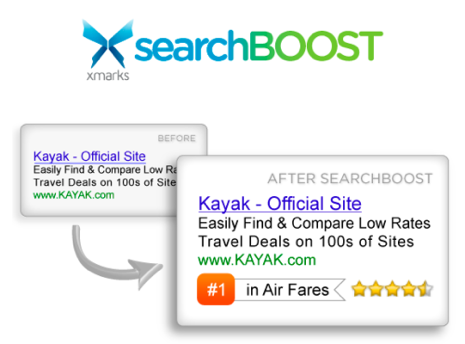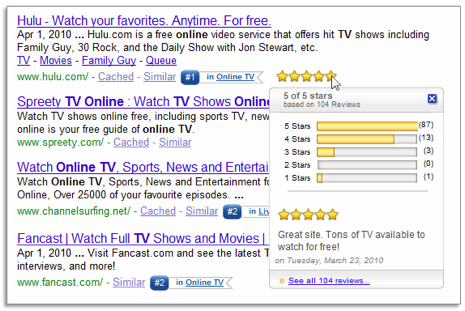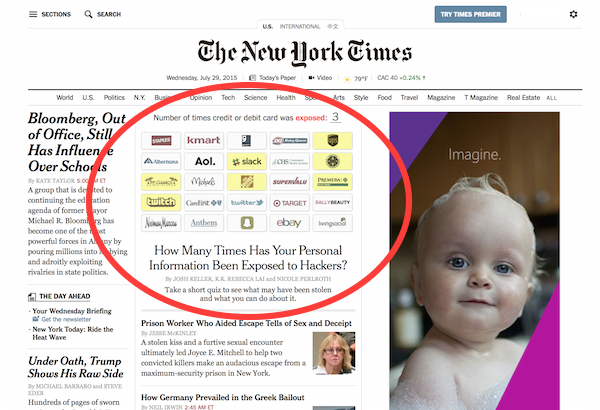What if you could enhance your ads in Google with collective intelligence — without going through Google?
Earlier this month, browser bookmark extension company Xmarks unveiled their plans to monetize their business with a service called SearchBoost. They take the idea of Google including ratings in ads to a whole new a level.
Here’s how it works:
Xmarks is a free browser add-on for Firefox, IE, Safari, and Chrome. It was originally designed to synchronize browser bookmarks across different computers — so bookmarks on your desktop, laptop, home machine, etc., are always in sync and backed up in the cloud.
As browser add-ons go, it’s pretty popular. They have over 4 million active users, and Xmarks claims to manage over 1 billion bookmarks. (As an interesting note, the Xmarks’ chairman and co-founder is none other than Mitch Kapor.)
But what makes Xmarks cool was their insight that the bookmarks of all their users could be treated as “votes” for what people liked — sharing the collective intelligence of good sites. Initially, Xmarks used this information to enhance the organic results in search engines and provide additional information about a site when you were on it.
But with the announcement of SearchBoost, Xmarks now lets advertisers pay Xmarks to include these crowdsourced ratings in their ads on Google and Bing.
Three aspects of this that I find fascinating:
1. Xmarks is changing Google and Bing advertisements without permission of the engines. Although add-ons could always do this in theory, this is the first time that I know of a company that intends to do so for financial gain. In an era where iPhone and Android apps are increasingly serving as customized intermediaries to content on the web, this is an interesting precedent.
2. Advertisers don’t fully control their ads anymore. An advertiser controls turning SearchBoost on or off, but they don’t have any influence over the crowdsourced ratings themselves. Obviously, only advertisers with good ratings will want to turn this feature on — but since such ratings are dynamic, advertisers are leaving their fate in the hands of the community. But in the era of social media, I think this is a great way to increase the trustworthiness of advertising via social proof.
3. Xmarks provides a third-party audit of Google and Bing SERPs and their ads. At least for the sample of users who have Xmarks installed, advertisers can receive end-to-end analysis of impressions and click-throughs — for both their ads and organic listings — and their competitors. Since neither Google nor Bing provide that level of transparency, this is valuable intelligence for marketers.
Now, of course, all this only works for users who have installed Xmarks. But according to the company, their 4+ million users conduct about 500 million searches per month — which for ads targeting the demographics of people who tend to install add-ons (technically-oriented users) is not an insignificant audience.
Xmarks claims their enhanced listings result in a 15% increase in CTR.
I’ll be curious to see how this works for Xmarks — and how those three aspects of SearchBoost appear and evolve elsewhere in the larger advertising ecosystem.




